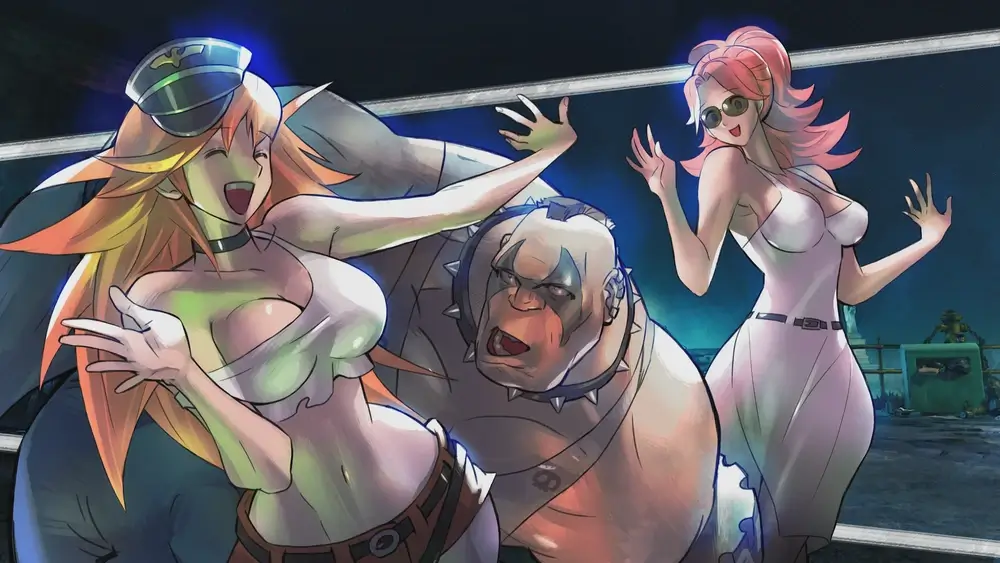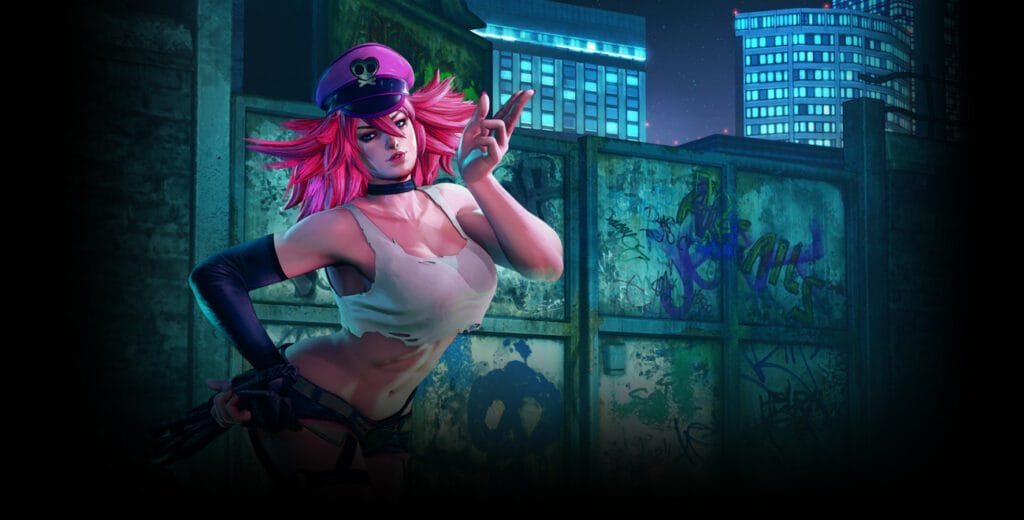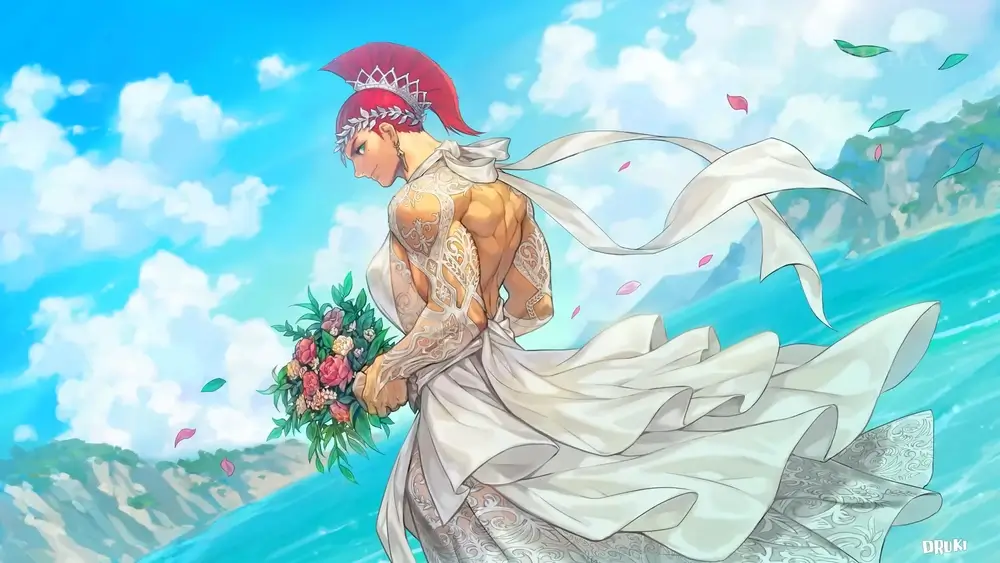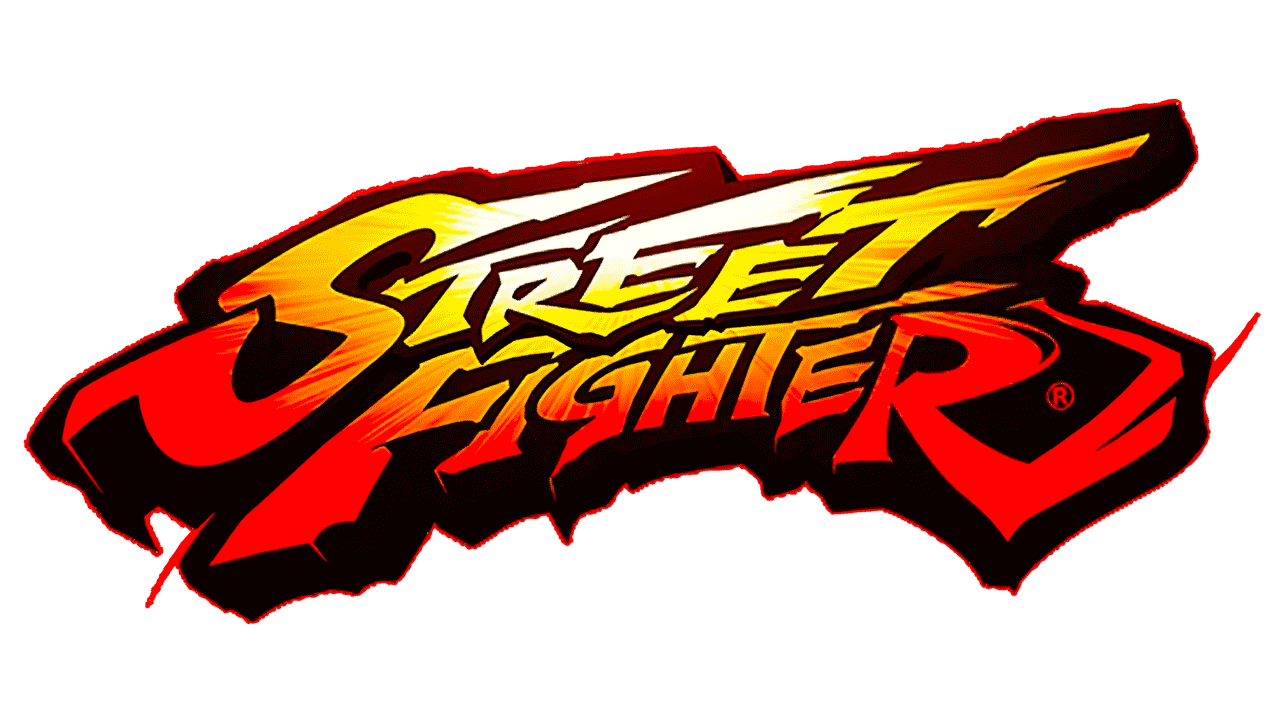In today’s increasingly inclusive sports world, it’s important to celebrate how far one of our most favorite fighting games – Street Fighter – has come on this front, being considered one of the pioneers of including gender-ambiguous characters in their games. Today, I plan to introduce you (or re-introduce you) to two very different LGBTQ+ Street Fighter characters, their complicated history and backgrounds, and how they make the fighting game space more diverse and inclusive.
Final Fight & Street Fighter Star – Poison
Poison’s story is rather… unique, to say the least. The Final Fight and Street Fighter star and her less popular sidekick Roxy were originally supposed to be badass female characters. They were even placed as key underlings of the infamous Mad Gear thug gang that can certainly put up a fight and dish out some damage to both male and female characters.
However, during Final Fight’s development, concerns began to surface on how the North American audiences would react to violence against women (as if it would be OK in Japan, or anywhere in that matter), with the game director Akira Nishitani becoming more and more concerned that the feminists would sue. To solve this issue, he labeled both Poison and Roxy as ‘newhalves’ (ニューハーフ) – the Japanese slang for “transgender women”.

Nishitani’s solution proved unsatisfactory for Nintendo of America, however, which led to a more drastic decision – both Poison and Roxy were replaced by the male duo of “Billy” and “Sid” for all North American ports of the title on Nintendo consoles and handhelds. However, in Japan, things still proceeded as normal, which led to some major conflicts in regards to their gender identity.
To make matters even more confusing, Nishitani has gone on record saying that Poison “could be male”, back to statingthat in his eyes, Poison was a woman (in a 2014 discussion on X (the platform formerly known as Twitter)). Street Fighter IV producer Yoshinori Ono has gone on record saying: “Let’s set the record straight: in North America, Poison is officially post-op transgender. But in Japan, she simply tucks her business away to look female.”

Despite the supposed ambiguity of her gender, Poison has been featured in a ton of fighting games, and is still considered one of the oldest and most popular examples of a transgender character in video games. Her status hasn’t stopped her from gaining a lot of fan love and adoration.
Street Fighter 6’s Marisa
This strong italian woman is far less controversial, but her background and inclusion to Street Fighter 6 paves the way to a whole new potential set of sexually-fluid and gender-fluid characters. Marisa holds the distinction of being the first openly bisexual character. And to make things even spicier, she’s also polyamorous. Death by snu-snu has suddenly become a very viable option in Street Fighter 6.
Capcom executive director Kaname Fujioka describes Marisa as “Strong-minded, showing her affection for both men and women in her own special way”. This sounds rather ambiguous, because on first glance, this statement might not refer to her sexuality at all, but refer to her being open to fight anyone, regardless of gender, but is later confirmed in-game where she asks the player to test two suitors in combat – one female and one male. After the test, however, she decides to marry both, confirming her being polyamorous. The player is even invited to join in on the relationship, should he/she wish. The game’s World Tour mode further confirms this – her grandmother sets her up with two suitors, one a female, one male. Marisa once again chooses to marry both.

Image: Druki
This more direct approach is rather unique to Street Fighter, showing signs of possible, more openly LGBTQ+ character debuts in the future. As we all know, representation in all aspects in life (fighting games included) is important, so it’s always good to see popular franchises embracing inclusivity and diversity!
But tell us what you think about these topics? Do you think that Poison’s gender-bending background is simply a mistake Capcom seeks to capitalize on, or is she truly a pioneering character? Is the inclusion of Marisa enough, or is something more needed? Is this all for inclusivity’s sake, or is it just a marketing ploy? We’d love to hear your thoughts on the subject, so why not leave a comment or send us an email?

Leave a Reply